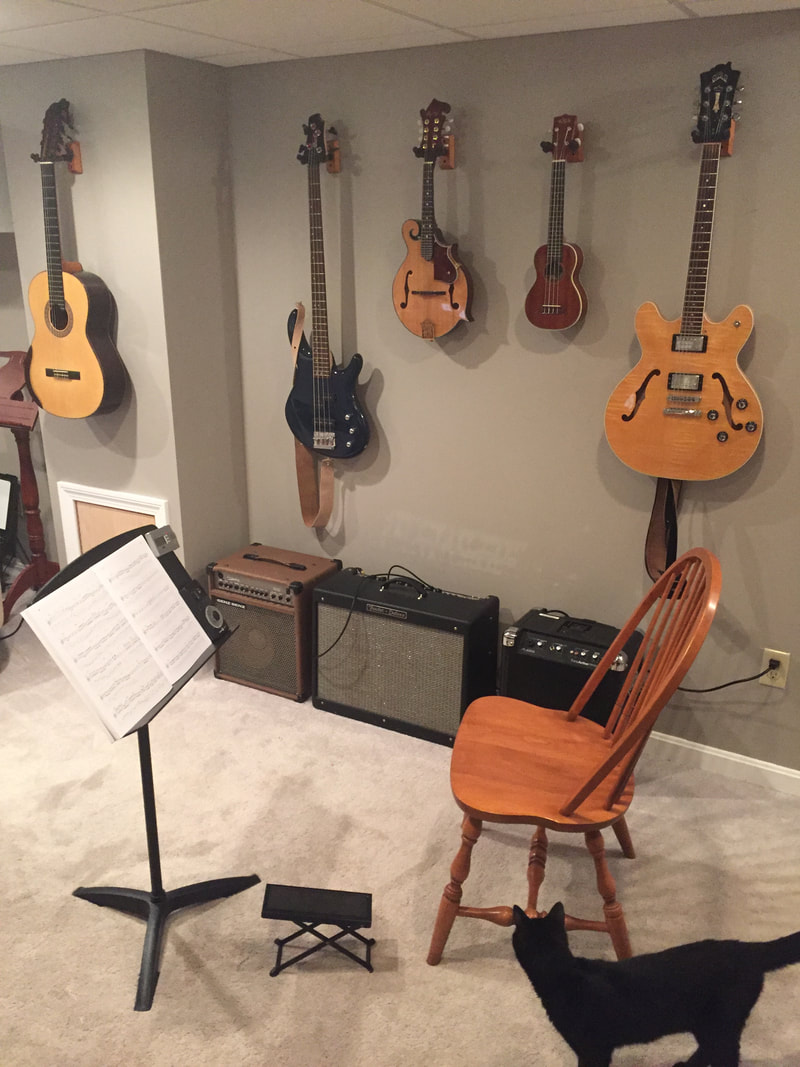|
Whenever I have a student that seems to be stalling in their progress I ask the question “Where do you practice?” The reason I ask is because I think the environment you create for yourself (or your child) to practice in is one of the most important factors in the success of that practice, and the progress made. Setting up a quality practice space can seem like a big commitment of space in your home, but the payoff for the student can’t be overstated. Here are a few tips for setting up a good space.
That’s it! If you can find the time and space to set yourself up well, practice will be something to look forward to, and progress will come faster and faster!
1 Comment
The art of playing the Classical guitar is often seen as an outsider in the wide world of guitar playing. The strict technique, the odd playing posture (as seen above), the necessity of reading, all place it in a different category of playing than your typical Rock, Jazz, or Folk styles. However I truly believe that, regardless of what style of music you play, every guitarist can benefit from the experience of playing Classical music in the Classical style.
Firstly, Classical guitar is by necessity very technique oriented. Due to the complexity of the music there is a great emphasis on efficiency of motion, relaxation, and posture that is above and beyond what is typical in the study of other styles. Learning how to use your hands efficiently and play with a minimum of tension is of huge benefit to your playing in any style. Also, in order to develop that technique you must first develop an ability to practice well! The study of Classical music requires that challenges be broken down and overcome in small pieces. A difficult passage might be broken down into the notes to be played, the rhythm, the left hand fingerings, the right hand fingering or picking, the articulation, the phrasing. Each of these layers can be peeled back individually to help students make steady forward progress no matter what the style. Lastly, there is a very different focus when studying Classical music than other styles. I’ve found in almost every other style of guitar playing the major focus is learning what to play. Learning your scales and modes, fingerpicking patterns, your different chord voicings up and down the neck. These are the focus of your typical guitar lessons. The interesting thing about Classical music is that there is no question of what to play. The notes are all written out for you! Now you get to focus on how to play them. I’m not talking about just the physical ability to hit all the notes, but the phrasing, articulation, tone quality, color, integrity of the voices. These are the details of playing that you get to explore much more deeply when the notes are all decided upon ahead of time. Until it is played, Classical music is just notes on a page. Our job as classical guitarists is to bring those notes to life and make it beautiful music. Developing that approach through the study of Classical music, and then bringing that same focus to the study of Rock, Blues, Jazz, Folk or any style of music will only serve to elevate the quality of your playing! There are clearly numerous other reasons for a musician, regardless of your goals as a musician, spend time and effort to study the classical guitar. Not the least of which being the pure beauty of the repertoire and the instrument. But, hopefully the few small examples I gave here are enough to get any guitarists out the to dive in! |
AuthorJeremy Milligan is a Freelance Guitarist and Teacher of Guitar and Music Theory ArchivesCategories |


 RSS Feed
RSS Feed
